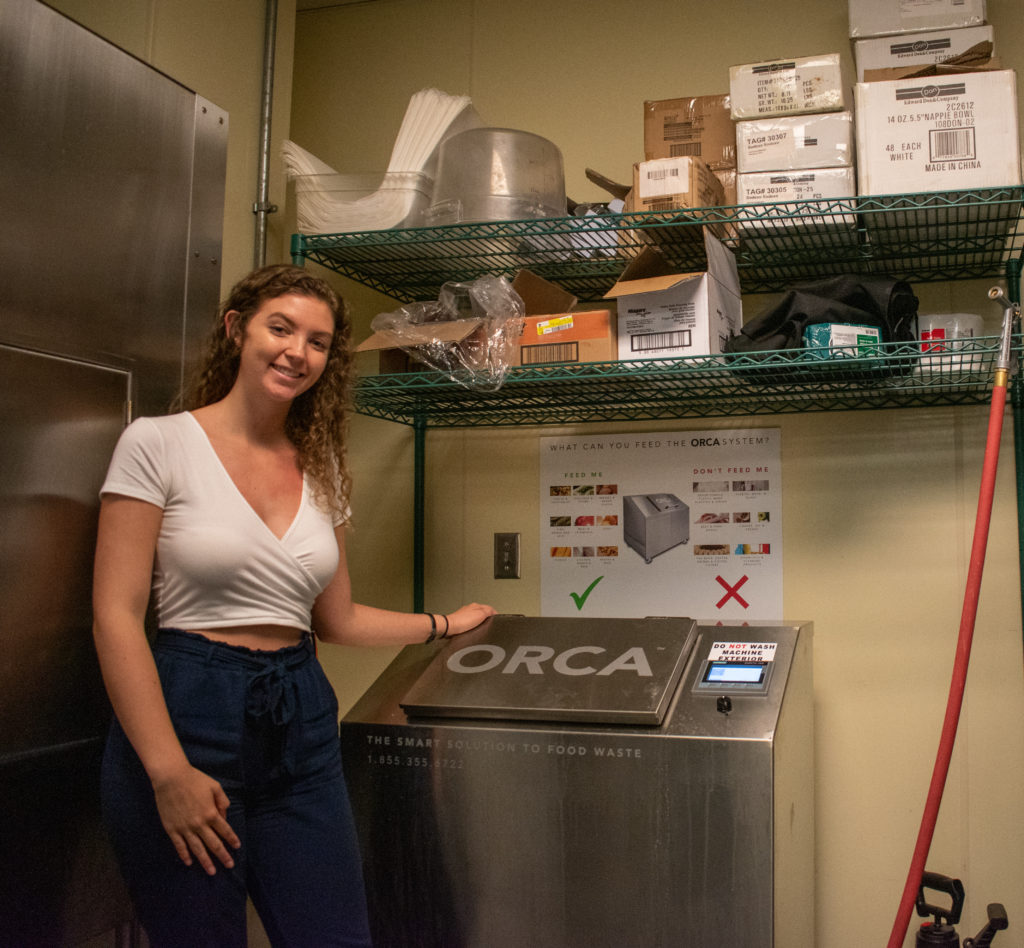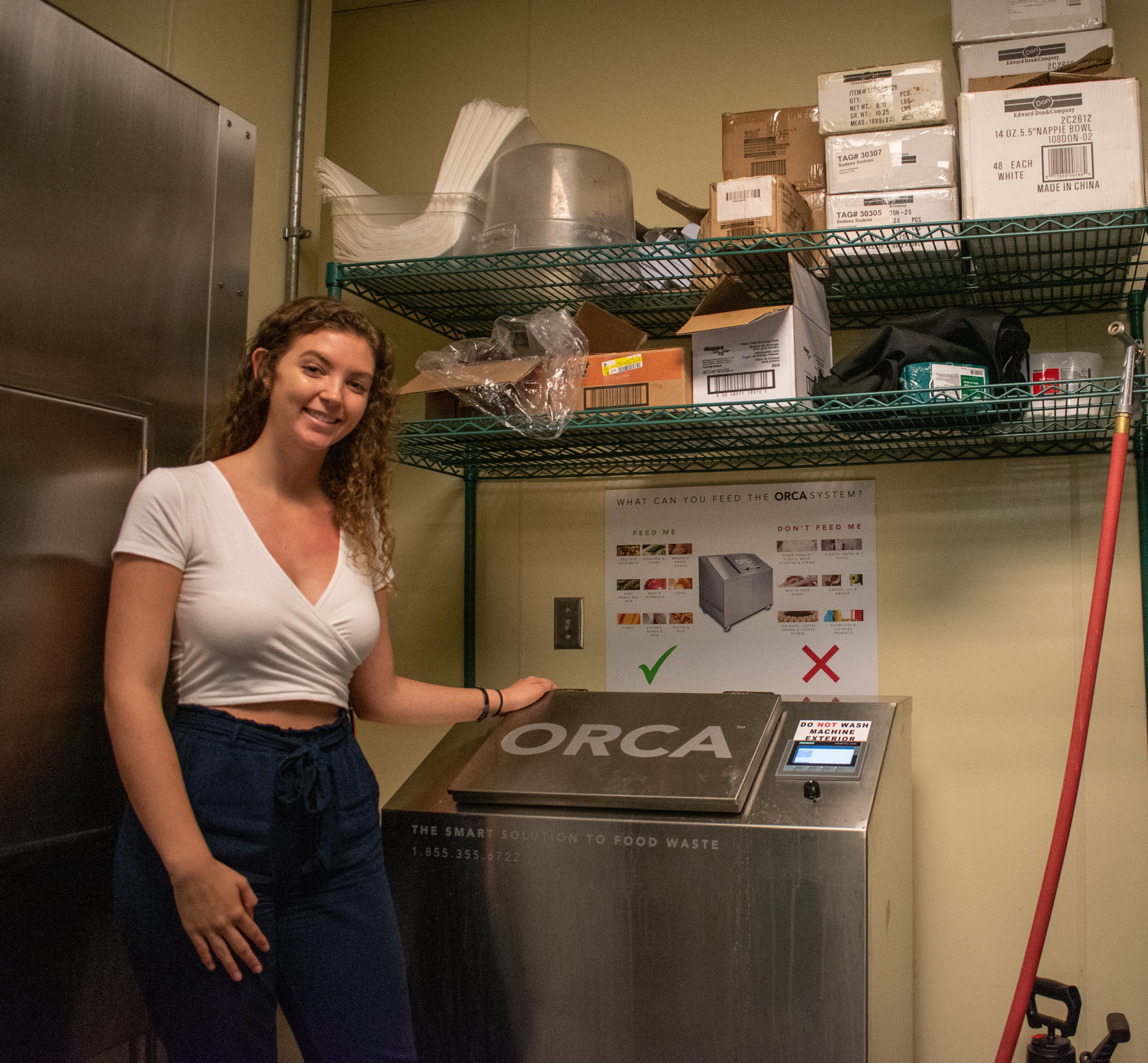The digestion process does not produce an offensive odor. It simply smells like the waste it is processing.

The ORCA digests food waste with oxygen, water, microorganisms and a grinder.
James Bennett III | The Crow’s Nest
By James Bennett III
In just under one month, the Student Green Energy Fund has diverted roughly 600 pounds of food waste from landfills by installing an ORCA biodigester in The Reef.
And the environment isn’t the only one benefitting from the new machine.
According to SGEF, the ORCA costs $550 a month. In comparison, SGEF’s project proposal said the university spends about $875.11 a month on trash collection for The Reef.
The digester uses a grinder, oxygen, water and microorganisms to convert food waste, such as onion peels and chicken bones, into a liquid effluent that is roughly 75 percent water, 5 percent minerals and 20 percent carbs, fats and proteins.
The effluent is then filtered through a 0.44-millimeter screen made of stainless steel and disposed through the university’s pre-existing plumbing. From there, it’s sent to a sewage treatment facility.
The digestion process does not produce an offensive odor. It simply smells like the waste it is processing.
Unserved food is still packaged and donated by the Food Recovery Club.
SGEF presented the new machine Aug. 27 in The Reef.
Emma Jacobs, vice chair of SGEF, said roughly 100 people attended the event.
Some students, who entered a raffle with their name, phone number and an idea to make the university more sustainable, were given the opportunity to check out the ORCA in person and have their picture taken with it. The photos are available on SGEF’s Instagram page.
“It’s something that we can control in our everyday life,” Jacobs said. “So bringing this technology to the university is a way of showing students that they can make a difference just by choosing to do certain tasks in their everyday life like leaving their food on their plates and not throwing it in the trash.
“They’re making a difference.”
Jacobs added that, according to a study conducted by the United Nations, if food waste was a country, it would be the third-largest contributor to greenhouse gasses and global warming because most food waste ends up in landfills, where it slowly decomposes and produces methane gas.
The university will lease the biodigester for three years. Once the new residence hall is constructed — projected around July 2020 — the biodigester will be moved to the building’s dining facility.
Overall, the entire project cost just under $25,000. The money used by SGEF comes from tuition fees.
Roughly $19,800 is allocated for the three-year lease, while the rest of the money is allocated for things like contingency and connecting the machine to the university’s plumbing.
Some of the money also went toward connecting the machine to the internet so data on the ORCA’s intake can be collected remotely.
Jacobs plans on feeding that data to a live infographic that will be displayed in The Reef.
Specifically, the model installed in The Reef is the OG 15 model, also known as the “baby ORCA.” It digests roughly 15 pounds of waste an hour and was chosen over ORCA’s larger models for the university because SGEF and an ORCA representative decided it would be the best match for the university’s waste production.
According to SGEF, USF St. Petersburg is the first university in the state of Florida to adopt this technology.




One thought on “Mechanic biodigester reduces costs, environmental impact”